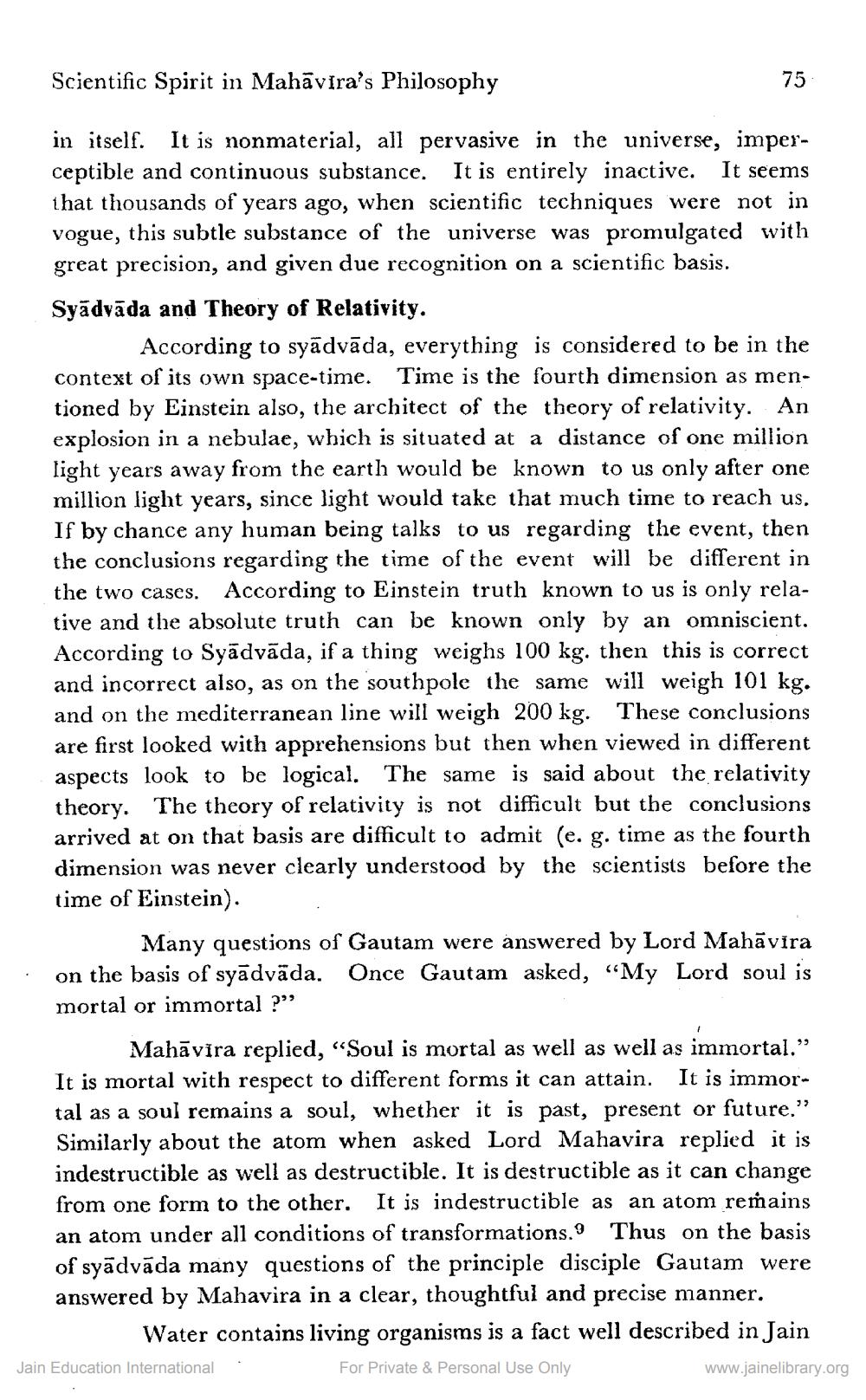________________
Scientific Spirit in Mahāvira's Philosophy
75
in itself. It is nonmaterial, all pervasive in the universe, imperceptible and continuous substance. It is entirely inactive. It seems that thousands of years ago, when scientific techniques were not in vogue, this subtle substance of the universe was promulgated with great precision, and given due recognition on a scientific basis. Syādvāda and Theory of Relativity.
According to syādvāda, everything is considered to be in the context of its own space-time. Time is the fourth dimension as mentioned by Einstein also, the architect of the theory of relativity. An explosion in a nebulae, which is situated at a distance of one million light years away from the earth would be known to us only after one million light years, since light would take that much time to reach us. If by chance any human being talks to us regarding the event, then the conclusions regarding the time of the event will be different in the two cases. According to Einstein truth known to us is only relative and the absolute truth can be known only by an omniscient. According to Syadvāda, if a thing weighs 100 kg. then this is correct and incorrect also, as on the southpole the same will weigh 101 kg. and on the mediterranean line will weigh 200 kg. These conclusions are first looked with apprehensions but then when viewed in different aspects look to be logical. The same is said about the relativity theory. The theory of relativity is not difficult but the conclusions arrived at on that basis are difficult to admit (e. g. time as the fourth dimension was never clearly understood by the scientists before the time of Einstein).
Many questions of Gautam were answered by Lord Mahāvira on the basis of syādväda. Once Gautam asked, “My Lord soul is mortal or immortal ?”
Mahāvīra replied, “Soul is mortal as well as well as immortal.” It is mortal with respect to different forms it can attain. It is immortal as a soul remains a soul, whether it is past, present or future." Similarly about the atom when asked Lord Mahavira replied it is indestructible as well as destructible. It is destructible as it can change from one form to the other. It is indestructible as an atom remains an atom under all conditions of transformations. Thus on the basis of syādvāda many questions of the principle disciple Gautam were answered by Mahavira in a clear, thoughtful and precise manner.
Water contains living organisms is a fact well described in Jain Jain Education International For Private & Personal Use Only
www.jainelibrary.org




